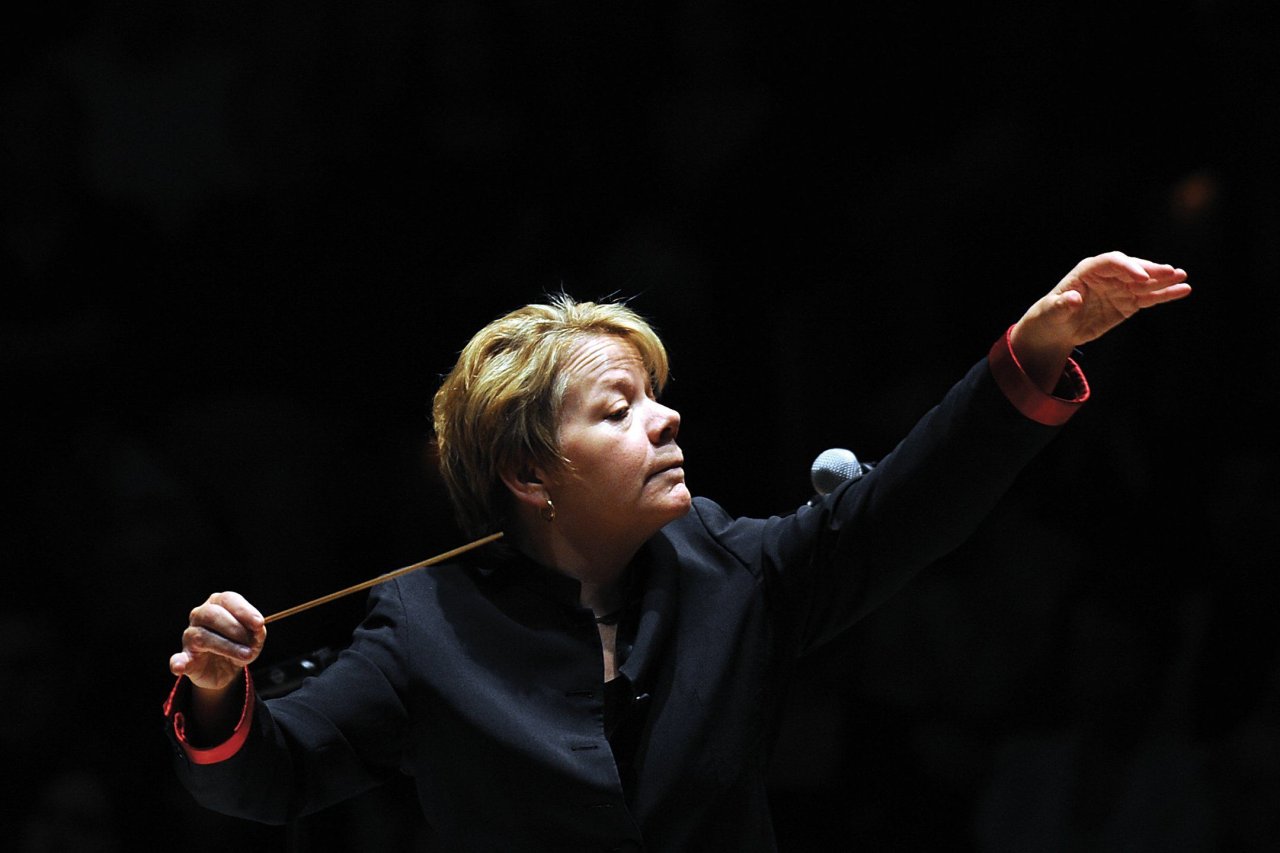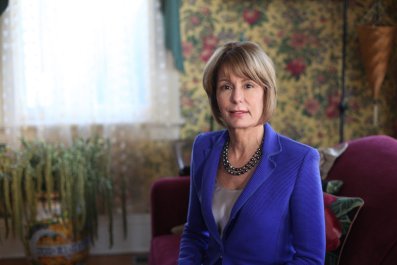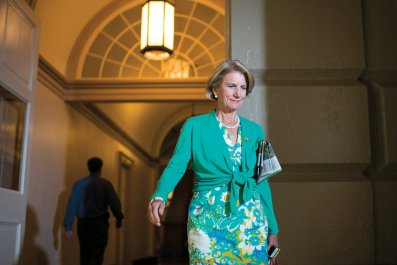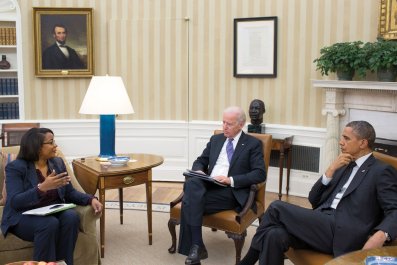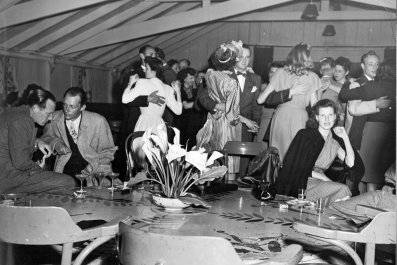The world of classical music has always moved sedately. But that hasn't stopped Marin Alsop. The diminutive conductor upended more than a century of male domination last week when she became the first woman to conduct the Last Night of the Proms—the finale of the world's biggest classical-music festival, which takes place in London and was founded in 1895. And she didn't let the occasion pass without acknowledgment: midway through her rapturously received performance, she turned to the sold-out audience at Royal Albert Hall and led the crowd in three cheers "in the name of progress."
"It does seem a bit archaic, doesn't it?" she told me when we spoke by phone two days after the concert. "It's hard to believe we've come so far as a civilization and yet there can still be firsts for women in so many areas. Obviously my preference would be not to have to dwell on the gender issue, but it's still necessary."
During our conversation, Alsop—who has led the Baltimore Symphony Orchestra since 2007, when she became the first woman to take charge of a major American orchestra—recalled the very first time she had conducted a professional concert. She was a young violin player in an orchestra and volunteered to take the helm when the regular conductor didn't show up. "All the guys in the brass section said, 'Ah, man, it's a girl'—they were really bummed out," she told me. "But at the end of the concert, one of the big guys came up to me and said, 'You were really great. I never even noticed you were a girl.' If you think about it too long, you think, God, what a horrible compliment, but I know it was really hard for him to come and say that."
More than 30 years later, her most recent triumph was also preceded by macho sniping. Vasily Petrenko, a leading Russian conductor, told Norway's most popular newspaper, Aftenposten, that orchestras "react better when they have a man in front of them." Men, he explained, "often have less sexual energy and can focus more on the music. A sweet girl on the podium can make one's thoughts drift towards something else."
Initially Alsop refused to address the comments, but she told me it had been a ridiculous thing to say. "Of course women are sexual beings, but they are capable leaders as well," she said. "I don't understand how it's not distracting to have a cute man on the podium—after all, half of the orchestra is comprised of women."
Alsop, 56, isn't just trying to change attitudes through her own conducting. She has also set up a scholarship for talented young female conductors. "There is still a mythology surrounding the maestro and what he looks like," she told me. The result has been some measure of progress: three graduates of her program have gone on to become music directors. But Alsop thinks the classical-music world still has a long way to go. I asked her whether she believes there will be an equal number of male and female conductors in 20 years' time. "I doubt it," she said.



